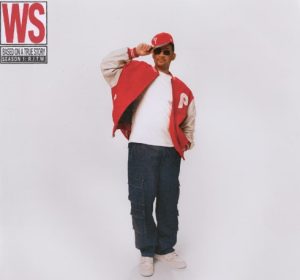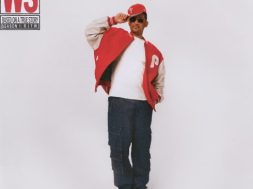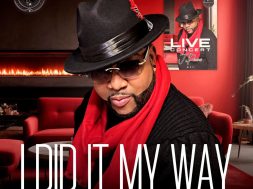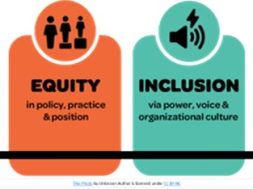Will Smith’s Based on a True Story Isn’t an Apology Tour—He’s Dropping Bars, and Some Can’t Take It
 By Edrea Davis – Will Smith’s return to music with Based on a True Story has sparked a range of reactions, but the most revealing part of the discourse isn’t even about the album—it’s about who’s reviewing it and how.
By Edrea Davis – Will Smith’s return to music with Based on a True Story has sparked a range of reactions, but the most revealing part of the discourse isn’t even about the album—it’s about who’s reviewing it and how.
Many mainstream writers seem to come at Smith’s work with a tone that’s lowkey dismissive—instead of critiquing the music, they’re judging the man. Suzy Byrne of Yahoo and Robin Murray of Clash Music, both solid veteran writers, reduce the album to an unnecessary, desperate, and inappropriate plea for redemption. Their tone drips with condescension, dismissing Smith’s music like it’s not worth the time.
Meanwhile, Delano Massey of Axios, a Black reviewer, approaches the album on its own terms—recognizing it as a raw, introspective body of work rather than a PR stunt. The stark contrast in these reviews isn’t a coincidence—it exposes the conditional nature of mainstream acceptance: Black artists are welcome, but only as long as they don’t disrupt the comfort of the room.
Byrne’s review (http://tiny.cc/6gwe001) is especially telling in how it frames Smith’s post-Oscars career. She quotes PR expert Eric Schiffer, whose comments drip with contempt. “If he wanted redemption, he should’ve dropped a sincere apology, not a playlist,” Schiffer said. “An album won’t erase the slap — it’s like trying to patch a trainwreck with Scotch tape.” He goes on to say Smith is “acting like a TikTok dad who doesn’t know when to log off,” calling him “out-of-touch” and dismissing his rollout as nothing more than “TikTok stunts,” because “virality doesn’t equal redemption.”
The tone is clear: Smith isn’t being evaluated as an artist—he’s being scolded like a child trying to sneak back into a grown folks’ conversation. And underneath that scolding is a deeper assumption: that the only acceptable path back to public life is a carefully scripted, mainstream-approved apology tour. That if he’s not groveling, he must not be sorry.
There appear to be a few unspoken assumptions here: 1) That Black folks canceled him, and 2) That he’s begging mainstream audiences to take him back. Not so.
These assumptions aren’t just wrong—they’re arrogant, as if Will Smith needs permission to return. They also ignore the strong support he continues to have from Black audiences. We didn’t cancel him—we can hold him accountable and still see his full humanity. We’re not shocked by his flaws. And the receipts don’t lie: Bad Boys: Ride or Die grossed over $400 million worldwide. That’s not a comeback—that’s proof he never left. The Will Smith brand is still strong, with or without anyone’s blessing.
Murray’s review (http://tiny.cc/cgwe001) is even harsher, calling the album “a waste of everyone’s time” and reducing Smith’s efforts to a “flailing, futile gesture.” He even suggests that Smith should’ve never made the album. That’s where the privilege and disconnect really show.
The expectation that Smith should retreat from public life, that he should “just be quiet,” is rooted in a racial double standard—often unrecognized, but loud in its impact. The same industry that once embraced him as the non-threatening “Fresh Prince” now has him on a permanent time-out.
Massey’s review (http://tiny.cc/5yxe001), on the other hand, actually engages with the music. He focuses on the sound, the themes, the artistic intent. He writes, “He doesn’t dodge the criticism — he samples it.” That line hits. It shows Smith is fully aware of how he’s perceived. He isn’t ignoring the moment—he’s processing it through art. Reuniting with DJ Jazzy Jeff isn’t about nostalgia—it’s about grounding. And when he curses in his lyrics for the first time? It’s not a gimmick. It’s a sign that he’s shedding the polished persona and finally letting the walls down.
So here’s the real question: Who gets to decide when he’s redeemed? Because let’s be honest—the folks who turned on him the fastest weren’t Black audiences. It was the same mainstream crowd that loved him as the Fresh Prince. Black people, while not excusing the slap, understood the moment for what it was—flawed, emotional, human.
The slap was wrong—as was Chris Rock’s joke—but this prolonged outrage years later is way too extra.
Since the Oscars moment, the mainstream media has been waiting for Smith to go on a public apology tour—groveling, begging, doing the rounds for forgiveness. But that’s not what this is. He’s not shuffling, not pleading, not bending over backward for Hollywood’s approval. He’s doing what he’s always done—telling his story through his art. Take it or leave it.
Their response? Not surprising. We’ve seen the pattern before: Black excellence is celebrated—until it makes people uncomfortable. Black humanity? Not so much. From Janet Jackson to Colin Kaepernick, the industry will cheer you on right up until you stop playing by the rules. Whether it’s taking a knee, speaking out, or simply being human in the wrong moment, the message is clear: stay in line, or get sidelined.
Bottom line: Based on a True Story isn’t about saving face. It’s about reflection. Self-awareness. Growth. For a rapper from West Philly who defied the odds and became a global icon, this is his manifesto.
You don’t have to like it—but it’s definitely worth a listen.









